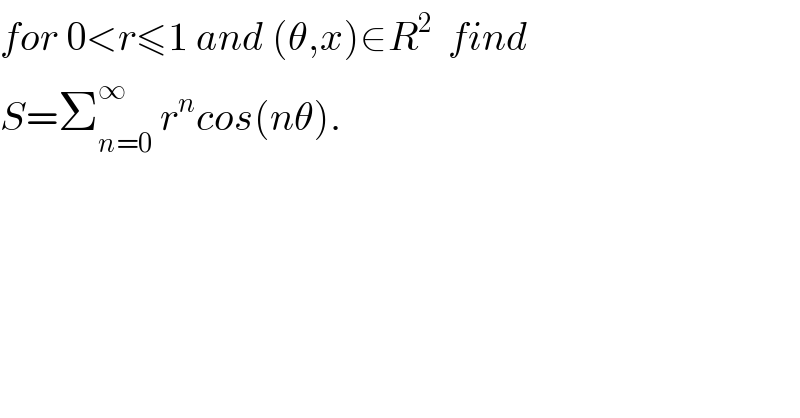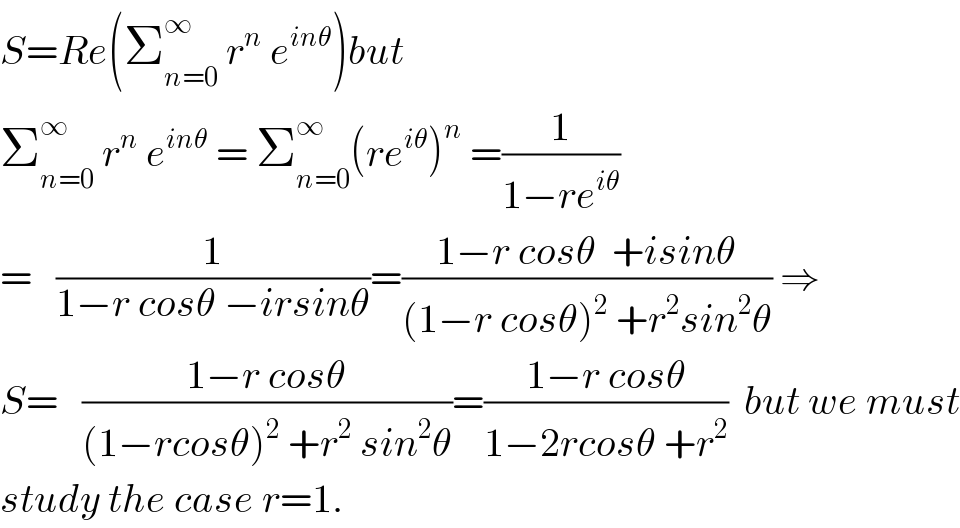Question Number 30601 by abdo imad last updated on 23/Feb/18

$${for}\:\mathrm{0}<{r}\leqslant\mathrm{1}\:{and}\:\left(\theta,{x}\right)\in{R}^{\mathrm{2}} \:\:{find} \\ $$$${S}=\sum_{{n}=\mathrm{0}} ^{\infty} \:{r}^{{n}} {cos}\left({n}\theta\right). \\ $$
Commented by abdo imad last updated on 24/Feb/18

$${S}={Re}\left(\sum_{{n}=\mathrm{0}} ^{\infty} \:{r}^{{n}} \:{e}^{{in}\theta} \right){but} \\ $$$$\sum_{{n}=\mathrm{0}} ^{\infty} \:{r}^{{n}} \:{e}^{{in}\theta} \:=\:\sum_{{n}=\mathrm{0}} ^{\infty} \left({re}^{{i}\theta} \right)^{{n}} \:=\frac{\mathrm{1}}{\mathrm{1}−{re}^{{i}\theta} } \\ $$$$=\:\:\:\frac{\mathrm{1}}{\mathrm{1}−{r}\:{cos}\theta\:−{irsin}\theta}=\frac{\mathrm{1}−{r}\:{cos}\theta\:\:+{isin}\theta}{\left(\mathrm{1}−{r}\:{cos}\theta\right)^{\mathrm{2}} \:+{r}^{\mathrm{2}} {sin}^{\mathrm{2}} \theta}\:\Rightarrow \\ $$$${S}=\:\:\:\frac{\mathrm{1}−{r}\:{cos}\theta}{\left(\mathrm{1}−{rcos}\theta\right)^{\mathrm{2}} \:+{r}^{\mathrm{2}} \:{sin}^{\mathrm{2}} \theta}=\frac{\mathrm{1}−{r}\:{cos}\theta}{\mathrm{1}−\mathrm{2}{rcos}\theta\:+{r}^{\mathrm{2}} }\:\:{but}\:{we}\:{must} \\ $$$${study}\:{the}\:{case}\:{r}=\mathrm{1}. \\ $$
